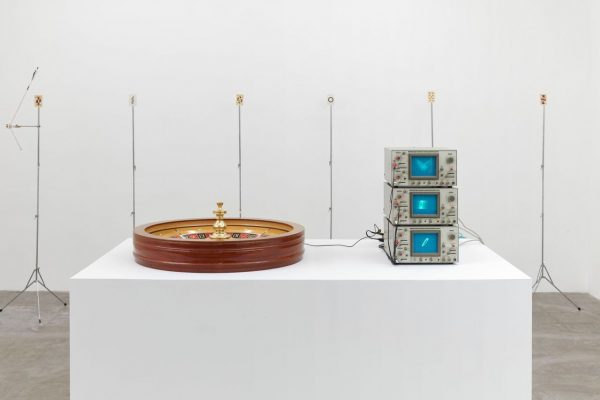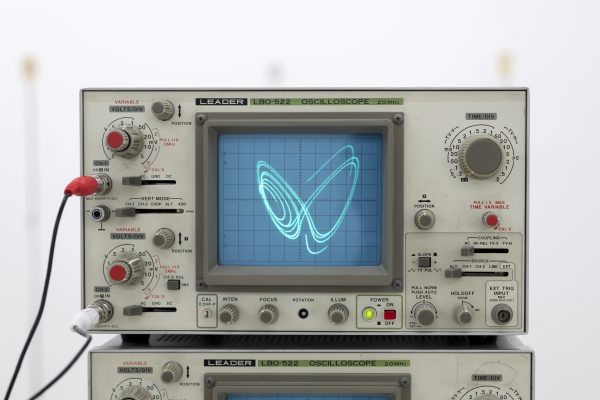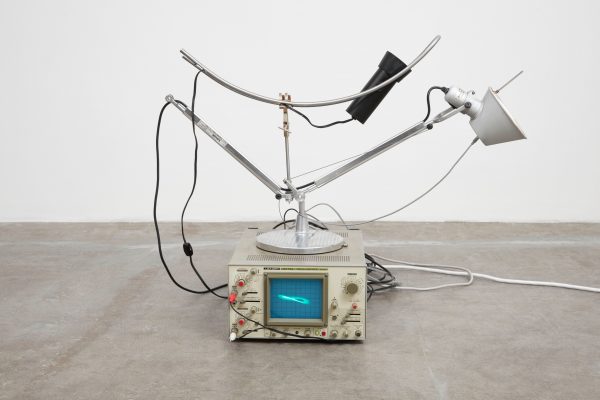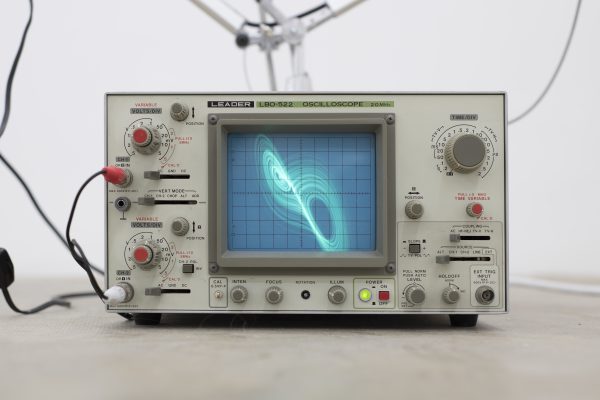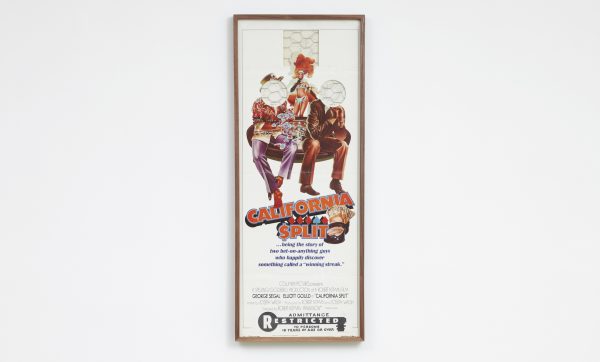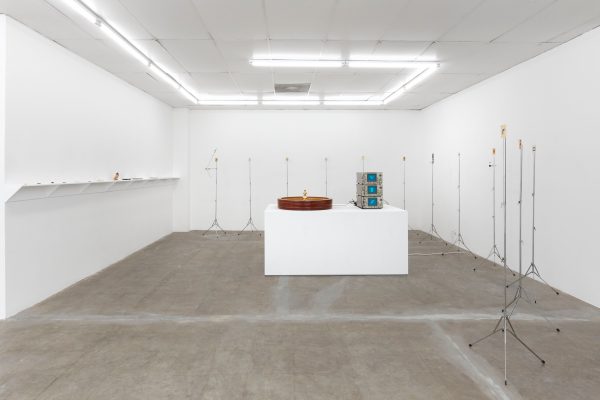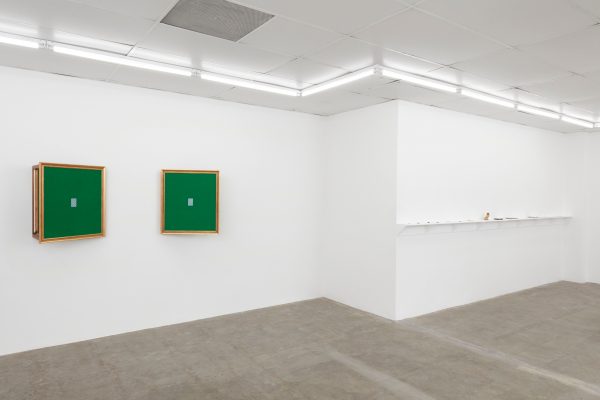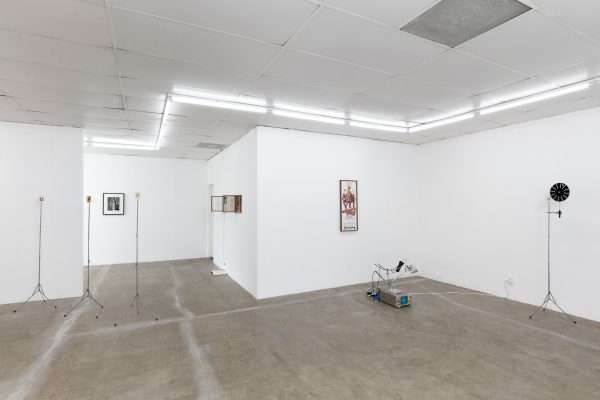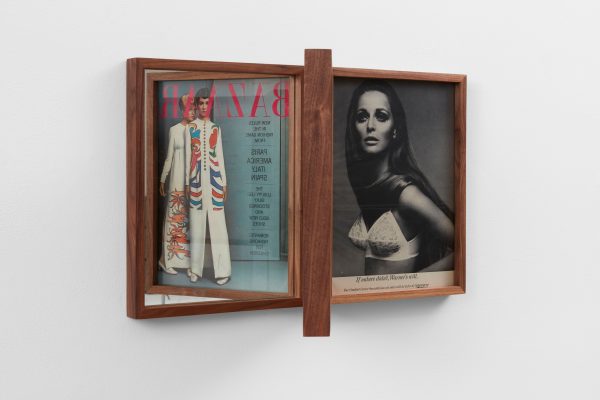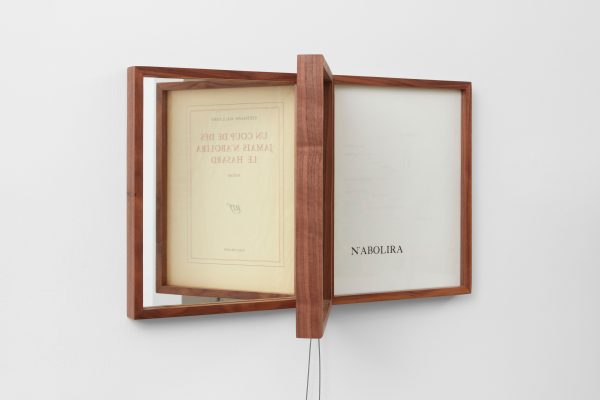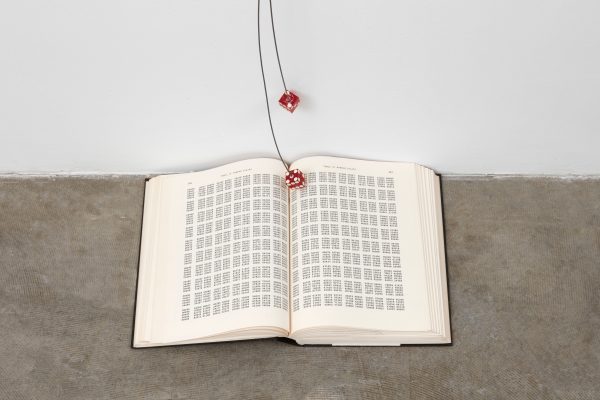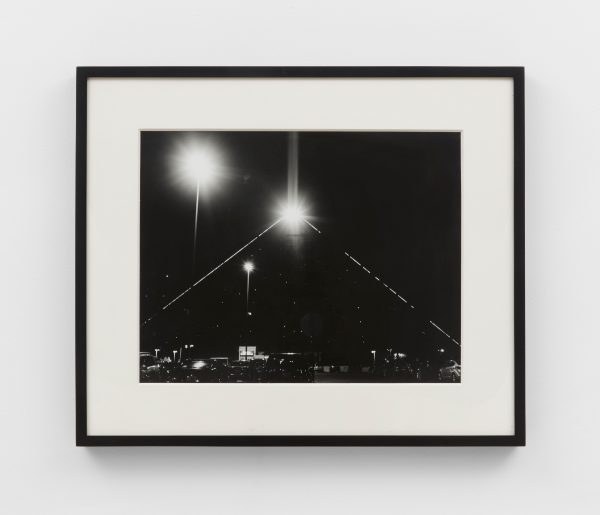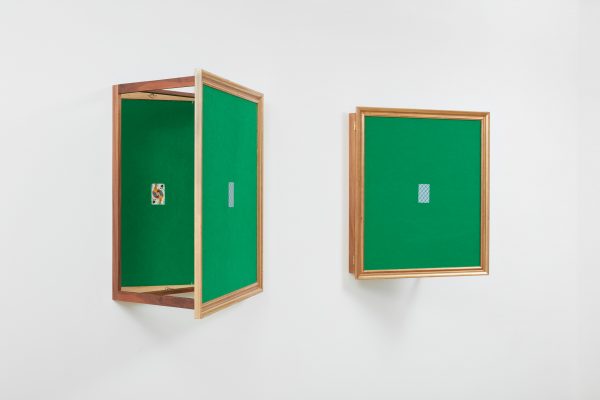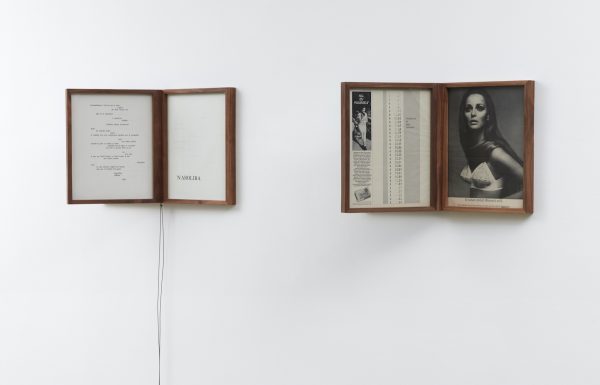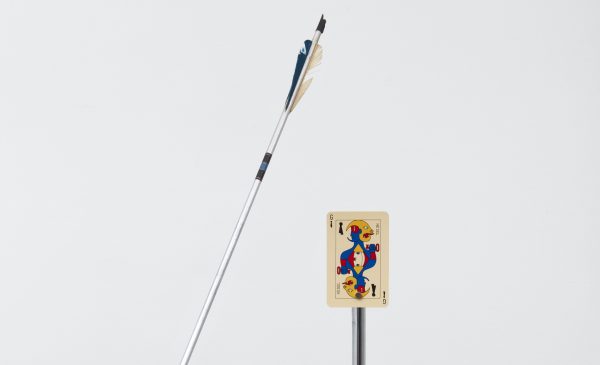Mindless Pleasures, Bel Ami, Los Angeles
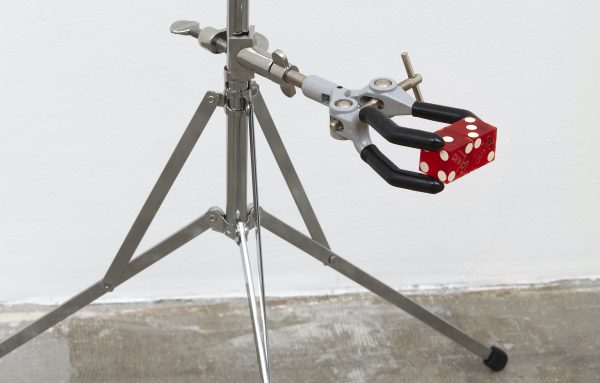

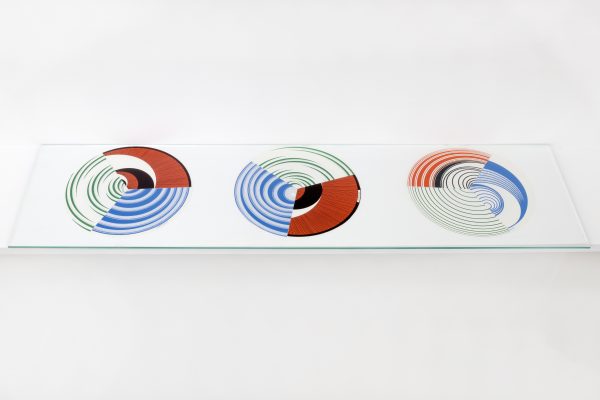
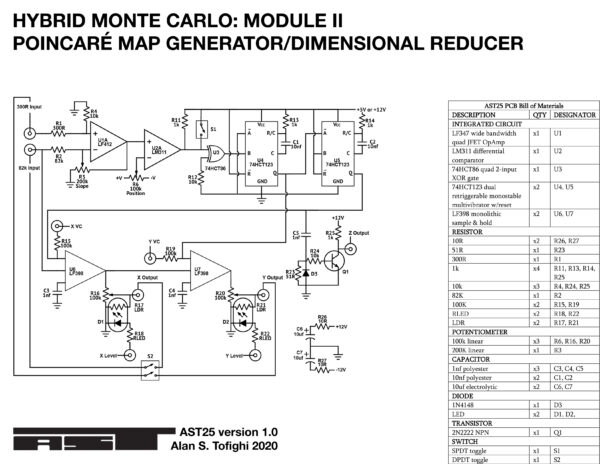

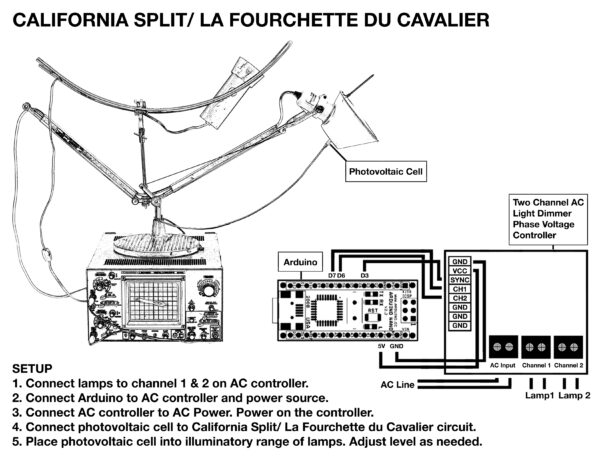
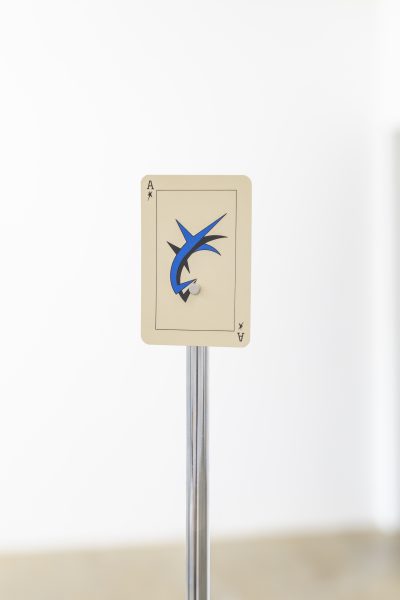
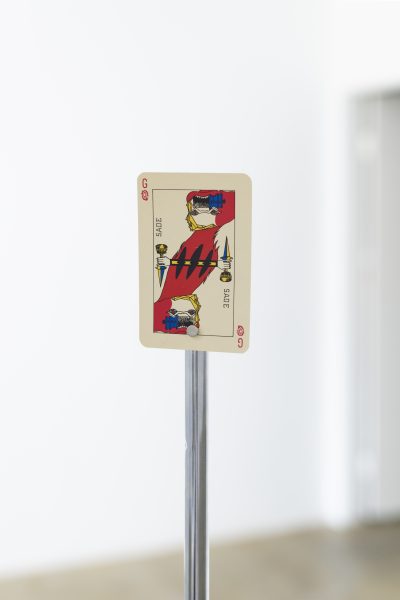
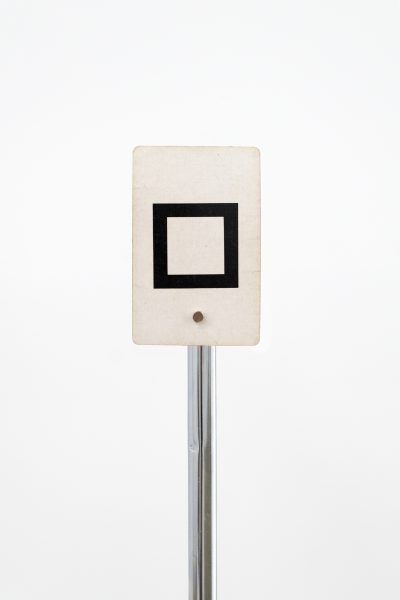
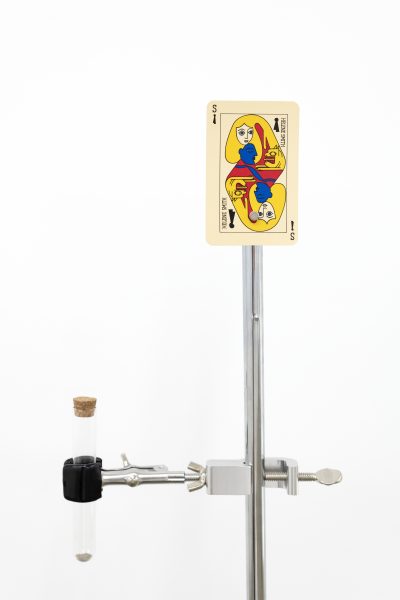

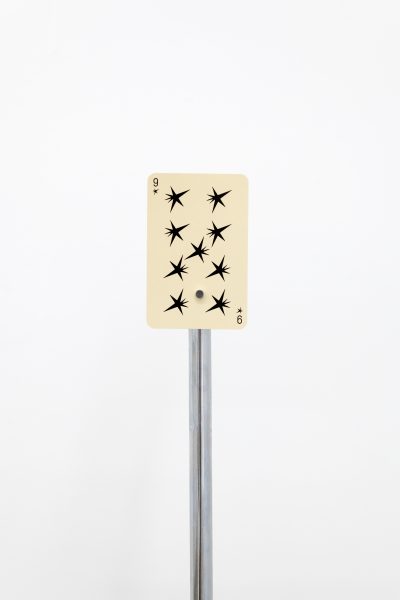
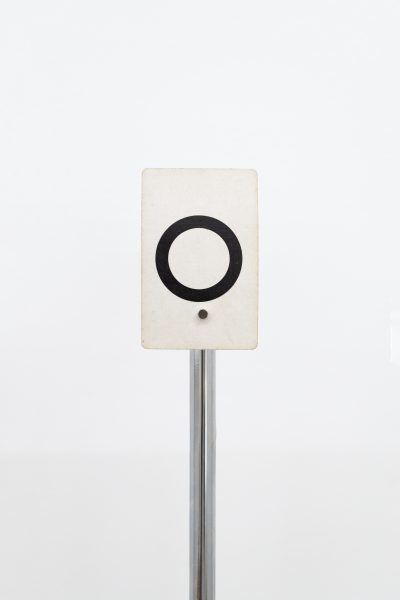
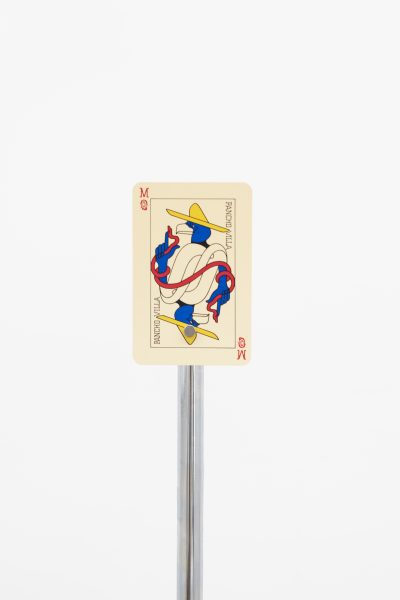
 Frieze, Scott Benzel Gambles with the Avant Garde by Jan Tumlir, 2020
Frieze, Scott Benzel Gambles with the Avant Garde by Jan Tumlir, 2020
X-TRA, Culture is War, interview with Scott Benzel by Keith J. Varadi, 2020
Press Release: Scott Benzel’s sculptures, installations, and photographs function both as deep investigations of cultural histories and as pieces in a coded game of chance. In Mindless Pleasures, his first solo exhibition at Bel Ami, Benzel combines remnants and ephemera to illustrate how often our most meaningful relationships form through a triangulation of contingency, timing, and pure luck. Each work embeds an element of risk, sometimes via a performative creative process, or by framing chance encounters in the context of an exhibition.
Mindless Pleasures takes its name from a working title for Thomas Pynchon’s Gravity’s Rainbow, a frenzied epic about the painful legacies of cultural inheritance in the dark moment of reckoning at the end of WWII. The original cover (discarded by Pynchon’s editor) was based on the Tarot card “the Tower,” a castle with blazing windows symbolizing destruction and renewal. Following Scott Benzel’s logic is sometimes like tracing the warping storylines of Pynchon’s sprawling narrative, always verging on collapse. At first Benzel’s references might appear bleak. Shuffle the deck again and his work conveys a superabundance of signs, portents, and revelations. Contrasting with Pynchon’s nihilistic farce, in this game of chance Benzel skillfully shows how a stroke of luck or misfortune can have profound implications.
The central work in the exhibition, Hybrid Monte Carlo (2020), features a vintage roulette wheel, analog circuits based on mathematical equations, and three oscilloscopes. The piece references the study of random processes, exploring how unpatterned fluctuations test perceptions of order, chaos, and free will. The installation invites you to place a bet. Apparently, the ball has an equal chance of landing in any of the 37 pockets. While the game is not ‘“fixed,” hidden operations are taking place: the wheel feeds data into the circuits and the oscilloscopes visualize equations by Edward Lorenz and Henri Poincaré, mathematicians who used roulette to develop what later became known as chaos or complexity theory. By utilizing antiquated technology as a form of citation, Benzel traces the modern history of chaos as a concept, and revels in the ways that gambling has opened up existential questions about our agency in the universe. Hybrid Monte Carlo also contains an oblique reference to Marcel Duchamp’s Monte Carlo Bond (1924-1938), a “financial document” which proposed a system for investing in art and roulette simultaneously. As it played out, Duchamp’s method was so excruciatingly slow that it comically drained the thrill of the gamble. Applying a similar dark humor to his own game, Benzel’s system generates chaos. However, longer engagement reveals that patterns do form: numbers eventually repeat. While predicting the future is dubious, the passage of time allows for the observation of phenomena beyond comprehension, and a clearer picture of the tension between chaos and control.
Today, under late capitalism, we are all gamblers taking risks just to stay in the game. As theorist Joshua Ramey asserts in Neoliberalism as a political theology of chance,“the entire world, the universe itself, is figured as a market, and chance in nature is both framed as and subordinated to those actionable risks that might make someone profit.” Ramey argues that neoliberalism forecloses all other ways of thinking about chance: either you are a winner or a loser. Scott Benzel defies this assumption and expands the conversation through his sculptural sensibility and openness to new terms. Using playful methods of citation, appropriation and homage, Benzel highlights how artists gamble, intentionally hovering in realms where meaning can burst into existence and just as easily collapse. Works in the exhibition offer due credit to creative gamblers including Brassaï, Dan Graham, Robert Filliou, Lee Lozano, Stéphane Mallarmé and others. Following suit, though with a manner of self-aware jest, Benzel does not limit his investigation to the art world and its rules: he draws on the languages of mathematics, music, film and literature. In particular, Robert Altman’s film California Split and Alexander Pushkin’s short story The Queen of Spades serve to triangulate calculation, fate, and chance.
In Mindless Pleasures, Scott Benzel studies how chance informs art, and how art increases our awareness of the shifting meanings around us. He shows how the moment of risk pays off in more than just dollars; it can expand our possibilities.
Scott Benzel (b. 1968 in Scottsdale, AZ) lives and works in Los Angeles. Benzel’s work has been exhibited or performed at the J. Paul Getty Museum, Los Angeles; the Los Angeles County Museum of Art; the Museum Of Contemporary Art Los Angeles; LA><ART, Los Angeles; The MAK Center for Art and Architecture, Los Angeles; The Palm Springs Art Museum; and the Contemporary Art Museum St. Louis; and was featured in Made in LA 2012 at the Hammer Museum, Los Angeles. Solo exhibitions include Maccarone, New York; Various Small Fires, Los Angeles; and Shanaynay, Paris. Benzel has collaborated with artists including Mike Kelley, Kathryn Andrews, and Mark Hagen, and curated exhibitions at the MAK Center for Art and Architecture (The Schindler House), Los Angeles; Los Angeles Contemporary Archive; and the Welcome Inn, Eagle Rock, CA, as part of Pacific Standard Time organized by Getty Museum, Los Angeles, among others. Benzel is a member of the faculty of the School of Art at California Institute of the Arts.
A Talk about Mindless Pleasures
Thursday, August 27, 2020
6PM PST
In conjunction with Scott Benzel’s current solo exhibition, Mindless Pleasures, the artist will discuss some of the theoretical and historical contexts informing his work, including but not limited to: the origins of chaos theory, the 19th century cultural obsession with roulette, and more recent concepts of time and cosmology.
This talk is based on a graduate seminar of the same title, which Scott Benzel taught at California Institute of the Arts in Spring 2019. Benzel is a member of the faculty of the School of Art at California Institute of the Arts (CalArts), Valencia, CA. Benzel has also lectured and participated in panels at the Whitney Museum of American Art, New York; the J. Paul Getty Museum, Los Angeles; Claremont Mckenna College, Claremont, CA; the University of California, Riverside, CA; and Lugar a Dudas, Cali, Colombia.
